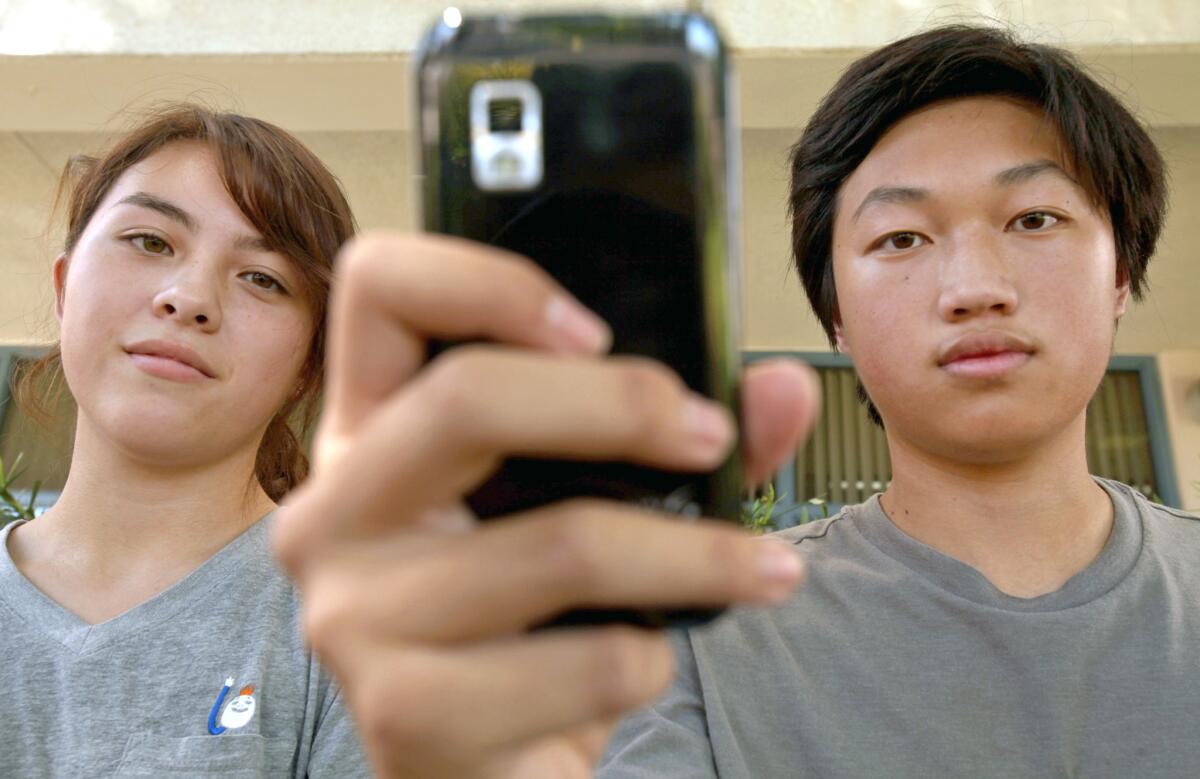GUSD continues to monitor students’ social media posts

Glendale school officials will continue to monitor students’ public posts on social networking sites this academic year, saying they will then be able to intervene if students appear to be in danger of hurting themselves or others.
Glendale Unified made national headlines last year after the school district agreed to pay Geo Listening, a Hermosa Beach company, $40,500 to monitor students’ public posts made by more than 13,000 students across Glendale’s nine middle and high schools to sites such as Twitter, Instagram and Facebook.
Last August, the school board voted to hire the company during a public meeting without any discussion. At the time, students and parents were unaware the school district hired Geo Listening or that the company had already piloted the program for one semester at three high schools in the district, beginning in January 2013.
On Tuesday, the school board agreed to hire Geo Listening again to monitor students’ posts. This time, however, district officials discussed it openly, and said the program has led to many successful interventions with students.
“This is not an invasion of privacy,” school board member Christine Walters said. “This is just taking public information and using it for our students’ well-being.”
During the 2013-14 school year, Geo Listening reported more than 1,400 incidents in which Glendale students discussed bullying, drug or alcohol use, suicide or cutting, among other topics. In many cases, however, when school officials investigated the reports, they found students did not intend to cause alarm and the posts merely amounted to “adolescent humor,” according to a district report.
In those cases, educators took the opportunity to advise students on the impact of their social-media use, said Kelly King, assistant superintendent of Glendale Unified.
“Many of these posts were them… trying to be funny. Once looked into by the school site administration, there was no basis for a concern,” she said. “It was, rather, an opportunity for a lesson that these are public [posts], these are permanent, these are out there and you really do need to watch what you put as your public image, and it’s never too early to monitor your public image.”
Although she said she could not cite specific incidents, more serious occurrences involved students potentially harming themselves, and that information “was incredibly important for us to provide critical interventions,” she said, including on nights or weekends.
“There are many instances where we’ve shared information with parents, and they’ve been stunned by what they don’t know,” King added.
Glendale Unified Supt. Dick Sheehan said the school district hired Geo Listening as a result of a student’s suicide at Crescenta Valley High School more than two years ago.
Drew Ferraro, 15, killed himself by jumping off a roof on campus. His family later sued the school district, alleging that bullying played a major factor in his death, according to court records.
Court records also show Ferraro appeared to be depressed. Shortly into the investigation of Drew’s death, Los Angeles Sheriff’s Lt. John Corina said his four suicide notes left behind “gave a different reason for doing what he did.”
“This all stemmed from the suicide up at CV [High],” Sheehan said on Tuesday of hiring Geo Listening. “We were very concerned about that. It was another proactive way to be involved.”
Chris Frydrych, chief executive of Geo Listening, has repeatedly declined to say how his company tracks students’ public posts.
District officials said they receive a daily email indicating if students’ posts refer to them hurting others or themselves, or using drugs, alcohol or destroying property, or engaging in other harmful activities, according to certain keywords or images included in the posts.
According to a district report, Glendale Unified received 20 reports of students referring to despair or suicide in public posts during the last school year. Another four were tied to self-harm or cutting.
More than 150 reports were tied to bullying and another 340 related to substance abuse. The majority of reports — 382 — were incidents in which students were being vulgar or profane.
Mary Boger, the outgoing school board president, said the contract with Geo Listening “is money well spent.” The district again agreed to pay $40,500 for the service this school year.
“The very fact that we were able to intervene and actually save a student in the last year — I don’t care how much we spent on it, it was worth it,” Boger said.
Legislation proposed by Assemblyman Mike Gatto (D-Silver Lake) earlier this year would prohibit school districts from storing students’ social-media information. Glendale school officials, however, said they do not retain any student’s information and use it only to notify parents and address serious concerns.
The bill, which unanimously passed the Senate Education Committee in June, would also require districts to notify parents if they monitor students’ posts, which Glendale Unified officials said they plan to do this academic year.